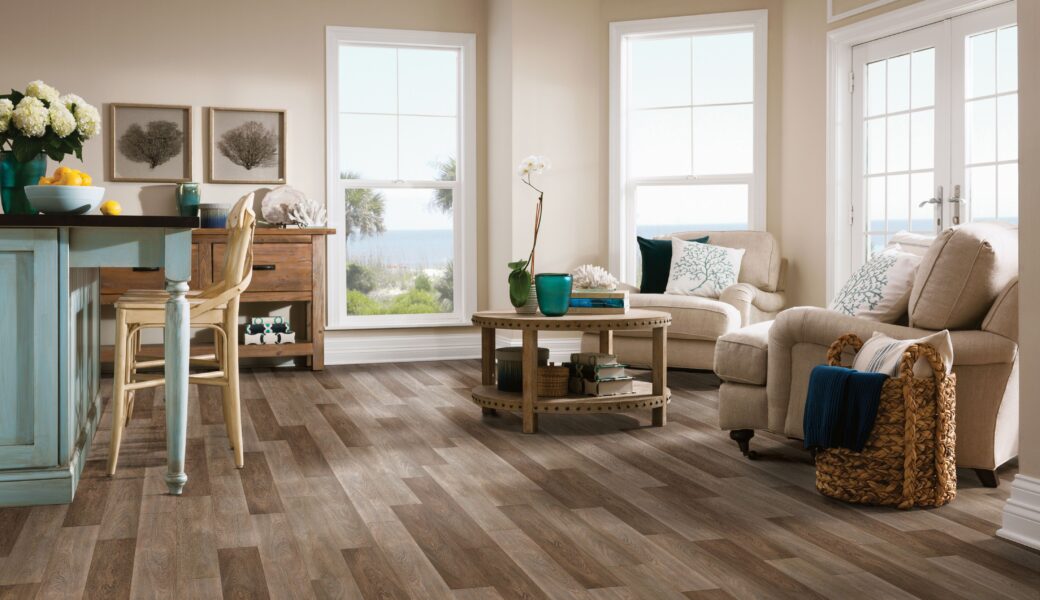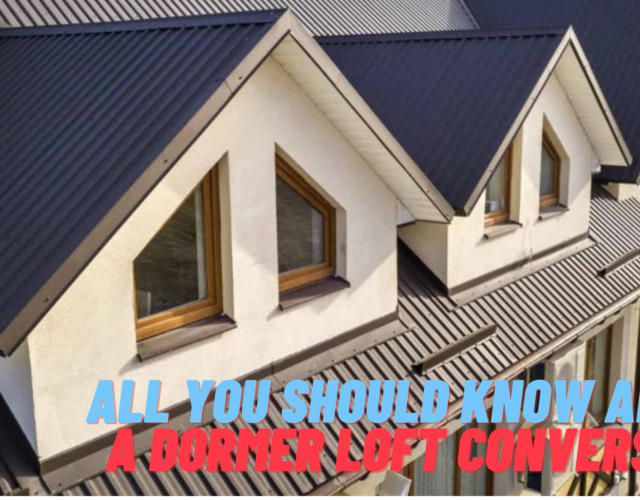Vinyl flooring is not new in the flooring industry. This flooring material has been around for more than 100 years. It was initially invented as a replacement for another durable synthetic flooring known as linoleum.
The vinyl floor manufacturers have been busy since the 1940s because they are popular for homeowners who are looking for durability, resilience, and water resistance. These qualities are perfect for floors in high traffic areas like the bathrooms and kitchens where vinyl flooring is primarily used.
Vinyl flooring is not impervious to wear and tear, however, they are resistant to water and are easy to maintain and clean. It is therefore an affordable and less hassle choice flooring material.
What is Vinyl Flooring?
Vinyl flooring is a versatile flooring material that came about from the introduction of PVC or poly-vinyl chloride. It is a synthetic plastic that has hydrogen, carbon, and chlorine content. The most common vinyl flooring is vinyl tiles or sheet vinyl.
This type of flooring is a composite type with a layer of PVC that is attached to a fibrous core. These layers are covered with a printed design layer and are covered with a clear layer. The difference between high-quality and low-quality vinyl flooring is in the thickness of the product and the durability of its wear layer.
Nowadays, vinyl flooring is available in several forms. You can have vinyl composite tiles, sheet flooring, and the newest flooring on the block, the luxury vinyl tiles or planks, otherwise known as LVF or LVT,
Different Types of Vinyl Flooring
Luxury Vinyl Tile (LVT)
If you are looking for a type of vinyl flooring that would imitate natural flooring like ceramic tile and hardwood, then you should choose LVT as an option. Because of the technological advances and design capabilities of vinyl supplier manufacturers, these flooring materials can now have the look and feel of the natural products they imitate.
Thus, you can have LVT in a wide variety of designs in both classic and trendy. It comes in either tiles or plank formats that look like wooden tiles and planks. The modular format of LVT is easier and faster to install than the other, which makes it ideal for home or room renovations.
When using LVT, there is no need to interrupt the daily routine for too long with room closures. You can also do floor renovations while the furniture is still inside the room.
Vinyl Roll
Another type of vinyl flooring comes in roll form. It is a fiberglass-cushion-backed flooring that comes in a large and continuous form in flexible sheets. Like LVT it is also limitless when it comes to designs. From classic to realistic to playful designs, vinyl floor manufacturer Thailand can have the design you want that would complement your room.
Vinyl rolls are safe to use for your flooring because they are 100% phthalate-free and have low VOC emissions. They are also one of the most budget-friendly flooring solutions available in the market today.
Advantages of Vinyl Flooring
Whatever type of flooring you choose, you will find that vinyl flooring has several district advantages that make it a perfect choice.
Durability
As mentioned earlier, vinyl flooring has distinct advantages, one of them is durability. It is an important factor in determining the types of floor material to use because it will tell you whether the flooring will last forever.
Many factors contribute to the durability of a product including the quality of the material, how it was manufactured, and how well it was installed.
Look for a vinyl floor manufacturer that treats its product with a special layer of surface treatment that provides extreme protection and makes the flooring material even more resistant to scratches and durable. A rigid core construction can also provide extra resistance and dimensional stability that will prevent expansion and contraction of the floor over time.
Water Resistance
The main reason why vinyl floors are used in the kitchen and bathroom is because of their resistance to steam, humidity, and moisture. That means water will not penetrate its surface and will not damage the subfloor. However, in time, you will see some vulnerability at the seams.
Easy maintenance
The last advantage of having vinyl flooring is it’s easy to maintain. Since this flooring type is resistant to stains, dirt, punctures, and scratches, it is easy to clean. However, it is not impervious to piercing from heavy furniture if they are not armed with protective pads.
It may also turn yellowish if it’s constantly exposed to direct sunlight. Some products have UV protection though, so they are safe. Beware of rugs with a rubber backing as they can have a chemical reaction and can stain the vinyl.
Conclusion
Durable, easy on the budget, and low maintenance. No wonder many homeowners choose vinyl flooring for their homes. According to vinyl floor manufacturers vinyl is also well-liked because there many designs to choose from that would complement every home style.












